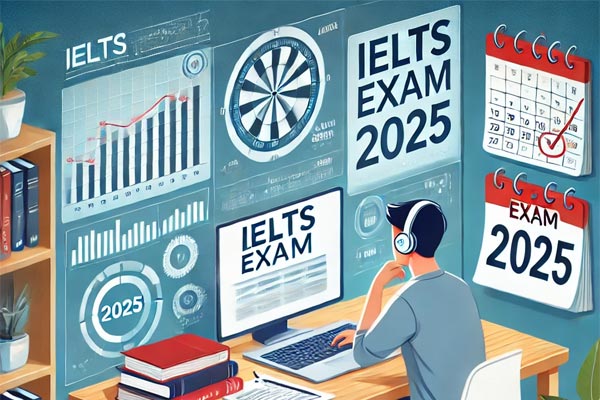As the world becomes increasingly globalised and communicative, the IELTS exam continues to evolve to reflect the needs of test-takers and institutions alike. Whether you’re aiming to study abroad, migrate, or secure international employment, staying informed about IELTS trends is crucial. One of the key debates going into 2025 is whether the IELTS exam is becoming more academic in nature or shifting towards real-life English usage. Let’s break down the current changes, trends, and what this means for future candidates.
The Core Purpose of IELTS
The IELTS (International English Language Testing System) assesses English proficiency across four key areas:
- Listening
- Reading
- Writing
- Speaking
It offers two modules:
- Academic: For students applying to higher education or professional registration.
- General Training: For migration, work experience, or training programs.
Historically, Academic IELTS has focused more on formal, university-level language, while General Training emphasised everyday communication. But in recent years, and now in 2025, this line is starting to blur.
Trend 1: A Shift Toward Real-World Contexts
One of the most notable trends in 2025 is that even Academic IELTS tasks are becoming more grounded in practical, real-world scenarios. For instance:
- Writing Task 1 in Academic IELTS often featured bar graphs and pie charts. Now, candidates are seeing more real-life visuals like maps, process diagrams, and comparative reports that mimic workplace tasks.
- Reading passages are still academic in tone, but now more frequently touch on contemporary global issues like sustainability, AI, and digital education, topics that are relevant and widely discussed.
- Speaking tests have moved towards personal opinions, preferences, and problem-solving. There’s a push to evaluate how well you can communicate in everyday social and professional situations.
This change aligns with the global need for graduates who can use English effectively in both academic and real-life settings.
Trend 2: More Emphasis on Communication Over Perfection
Fluency and coherence now carry more weight than grammatical precision. The goal? To assess whether you can be understood clearly in real-life situations, not just whether you can write a textbook-perfect sentence. This is evident in both speaking and writing criteria.
Even the listening test includes more natural conversations, with different accents, informal expressions, and faster pacing, mimicking how English is used across cultures.
Trend 3: Increased Digital Integration
As more test-takers opt for computer-based IELTS, the format has also begun to incorporate interactive elements:
- Reading tasks with clickable tables or fill-in-the-blanks.
- Writing with word counters and digital editing tools.
This digital shift is both academic and practical. After all, in 2025, most professionals and students rely heavily on digital tools in real life.
What This Means for You
So, is IELTS becoming more academic or more real-life?
The answer is: both. The exam is adapting to meet the needs of modern global citizens, people who need to think critically in academic settings and communicate effectively in real life.
To succeed in IELTS 2025, you need:
- A broad vocabulary that covers academic and everyday topics.
- Critical thinking skills for reading and writing tasks.
- The ability to express ideas naturally and clearly in speech.
- Familiarity with technology-enhanced test formats.
Let Focus Education Guide You
At Focus Education, we stay ahead of IELTS trends so you don’t have to. Our expert trainers and personalised approach ensure that you’re not just preparing for an exam but preparing for life in English-speaking environments.
Whether you’re targeting Academic or General Training, we help you:
- Master both academic and practical English
- Build real-life communication confidence
- Practice with updated materials based on the latest IELTS formats
Join Focus Education today and let us help you unlock your global future with confidence and clarity.
Contact us today for a free consultation and take the first step toward your IELTS success!



